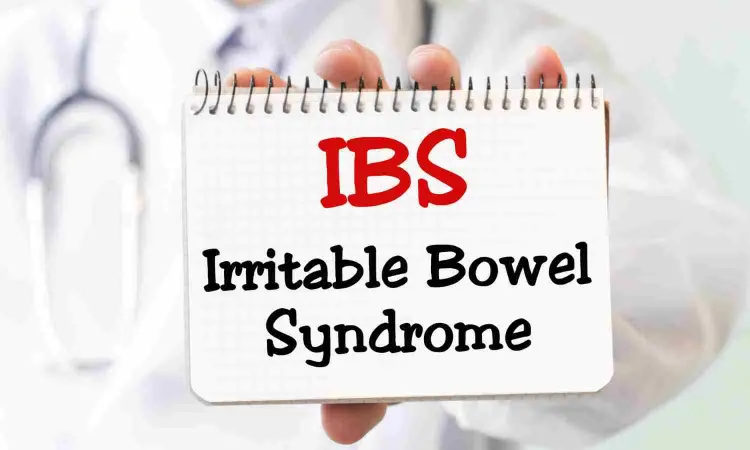- Home
- Medical news & Guidelines
- Anesthesiology
- Cardiology and CTVS
- Critical Care
- Dentistry
- Dermatology
- Diabetes and Endocrinology
- ENT
- Gastroenterology
- Medicine
- Nephrology
- Neurology
- Obstretics-Gynaecology
- Oncology
- Ophthalmology
- Orthopaedics
- Pediatrics-Neonatology
- Psychiatry
- Pulmonology
- Radiology
- Surgery
- Urology
- Laboratory Medicine
- Diet
- Nursing
- Paramedical
- Physiotherapy
- Health news
- Fact Check
- Bone Health Fact Check
- Brain Health Fact Check
- Cancer Related Fact Check
- Child Care Fact Check
- Dental and oral health fact check
- Diabetes and metabolic health fact check
- Diet and Nutrition Fact Check
- Eye and ENT Care Fact Check
- Fitness fact check
- Gut health fact check
- Heart health fact check
- Kidney health fact check
- Medical education fact check
- Men's health fact check
- Respiratory fact check
- Skin and hair care fact check
- Vaccine and Immunization fact check
- Women's health fact check
- AYUSH
- State News
- Andaman and Nicobar Islands
- Andhra Pradesh
- Arunachal Pradesh
- Assam
- Bihar
- Chandigarh
- Chattisgarh
- Dadra and Nagar Haveli
- Daman and Diu
- Delhi
- Goa
- Gujarat
- Haryana
- Himachal Pradesh
- Jammu & Kashmir
- Jharkhand
- Karnataka
- Kerala
- Ladakh
- Lakshadweep
- Madhya Pradesh
- Maharashtra
- Manipur
- Meghalaya
- Mizoram
- Nagaland
- Odisha
- Puducherry
- Punjab
- Rajasthan
- Sikkim
- Tamil Nadu
- Telangana
- Tripura
- Uttar Pradesh
- Uttrakhand
- West Bengal
- Medical Education
- Industry
Vitamin D Supplementation May Improve Quality of Life in IBS Patients, finds research

A recent systematic review and meta-analysis published in the journal of Critical Reviews in Food Science and Nutrition highlighted the potential role of vitamin D in improving quality of life for individuals with irritable bowel syndrome (IBS). While many individuals with IBS show insufficient or deficient levels of serum 25-hydroxyvitamin D [25(OH)D], whether increasing vitamin D intake can lead to improvements in symptom severity and overall well-being still remains unanswered.
This research evaluated the changes in vitamin D intake or serum levels that could positively affect IBS-related symptoms and quality of life. After a systematic search of multiple databases, including MEDLINE®, Cochrane, and EMBASE, up until August 12, 2024 relevant data was gathered. In total, 12 studies comprising 15 articles made the cut for the final analysis.
Meticulous data extraction was performed according to the PRISMA guidelines to ensure a thorough and structured approach. For randomized controlled trials (RCTs), the Nutrition Quality Evaluation Strengthening Tools were used to assess potential bias, while meta-analyses employed random effects models to evaluate pooled results.
Among the 12 included studies, a majority of the populations had deficient or insufficient baseline serum 25(OH)D levels. The intervention periods varied, with vitamin D supplementation ranging from daily doses of 3,000 IU to bi-weekly doses of 50,000 IU over 6 to 26 weeks. The meta-analysis of low-risk RCTs demonstrated a significant increase in serum vitamin D levels in individuals who received supplementation when compared to placebo groups. The pooled mean difference for serum 25(OH)D levels was 20.33 ng/mL that confirmed the efficacy of supplementation in raising vitamin D status. The significant improvements were observed among populations with deficient baseline vitamin D levels in terms of quality of life. The pooled results showed a positive shift in quality of life scores by indicating that restoring vitamin D levels can contribute to improved well-being in IBS patients.
However, the impact on IBS symptom severity was less clear. The meta-analysis showed a trend toward reduced symptom severity, but the results were not statistically significant. The high heterogeneity (I2 = 92.8%) in the data suggests that further research is needed to better understand the variability in outcomes. Overall, the study provides evidence that vitamin D supplementation can improve serum 25(OH)D levels and quality of life in IBS patients with initially low levels of the vitamin.
Reference:
Cara, K. C., Taylor, S. F., Alhmly, H. F., & Wallace, T. C. (2024). The effects of vitamin D intake and status on symptom severity and quality-of-life in adults with irritable bowel syndrome (IBS): a systematic review and meta-analysis. In Critical Reviews in Food Science and Nutrition (pp. 1–14). Informa UK Limited. https://doi.org/10.1080/10408398.2024.2400603
Neuroscience Masters graduate
Jacinthlyn Sylvia, a Neuroscience Master's graduate from Chennai has worked extensively in deciphering the neurobiology of cognition and motor control in aging. She also has spread-out exposure to Neurosurgery from her Bachelor’s. She is currently involved in active Neuro-Oncology research. She is an upcoming neuroscientist with a fiery passion for writing. Her news cover at Medical Dialogues feature recent discoveries and updates from the healthcare and biomedical research fields. She can be reached at editorial@medicaldialogues.in
Dr Kamal Kant Kohli-MBBS, DTCD- a chest specialist with more than 30 years of practice and a flair for writing clinical articles, Dr Kamal Kant Kohli joined Medical Dialogues as a Chief Editor of Medical News. Besides writing articles, as an editor, he proofreads and verifies all the medical content published on Medical Dialogues including those coming from journals, studies,medical conferences,guidelines etc. Email: drkohli@medicaldialogues.in. Contact no. 011-43720751


